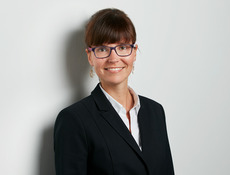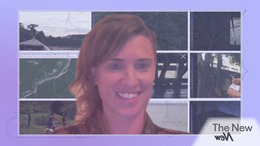AI-based voice assistant systems which, unlike Amazon Alexa, Cortana and Siri, do not reinforce stereotypes. A digital platform that provides support to victims of domestic violence. A critical-thinking card game designed to get players to question the absurdities of technology. A collaborative online portal that improves the data on poorly documented medical conditions among underrepresented groups. These are just a few examples of the twelve projects that were funded for six months as part of The New New fellowship.
Large interest in a place to explore visions for our digital futures
Following intensive preparation, our Ethics of Algorithms project, together with the non-profit Superrr Lab, issued a call for applications for the first “The New New”fellowship at the end of 2020. The fellowship serves as a vehicle to explore potential answers to the following questions:
- What kind of world do we want to live in?
- What role should digital innovations play in this world?
- How can we ensure that algorithms, artificial intelligence and other technologies foster inclusion, diversity and cohesion?
By January 6, 2021, the application deadline, we had received almost 300 applications from across Europe. Vastly exceeding our expectations, this response clearly showed that there are many ideas of how to go about strengthening human-centered digital transformation in Europe.
Choosing from more than 300 fellowship applications, “The New New” advisory board twelve projects from nine countries. In addition to six months of financial support, each project was provided coaching support tailored to their specific needs and was able to participate in regular networking events with the other fellows. Fellows were thus provided the professional development tools they need to intensify their activities and inspire impulses for more just and inclusive digital futures.
A diversity of perspectives reveals alternatives to the status quo
The fellowship began with input from the fellows on their wants and needs regarding the program’s design. In addition to monthly networking meet-ups among the fellows, the program conducted three public workshops on the following issues, which were determined by the fellows: “Safe(r) and Brave Spaces,” “Decoloniality“ and “Thinking of Futures.”
Several interviews have also been published on the project’s dedicated “The New New” blog. In the interviews, the fellows discuss the plans they have for their projects, the motivation informing their projects, and their values with regard to digitalization.
Propositions for better digital futures
What are the digital futures we can imagine? The answer to this question depends largely on whom the public pays attention to – and who is ignored. Can new perspectives enter public debates and draw our attention toward things that are frequently overlooked?
These questions framed “The New New”online event on October 7, 2021, which marked the conclusion of the first round of fellowships. The closing event featured contributions from several fellows and those of other experts, voicing their propositions for better digital futures in the form of three-minute presentations.
Coming from a variety of different perspectives, the contributions highlighted the blind spots within our digital discourses in society, which range from the lack of awareness about algorithmic decision-making in social contexts to issues regarding access to infrastructure. The contributions thus brought into focus those perspectives that otherwise receive little or no attention. In addition to highlighting injustices, participants’ contributions outlined the different ways in which our digital futures can be developed more equitably.





